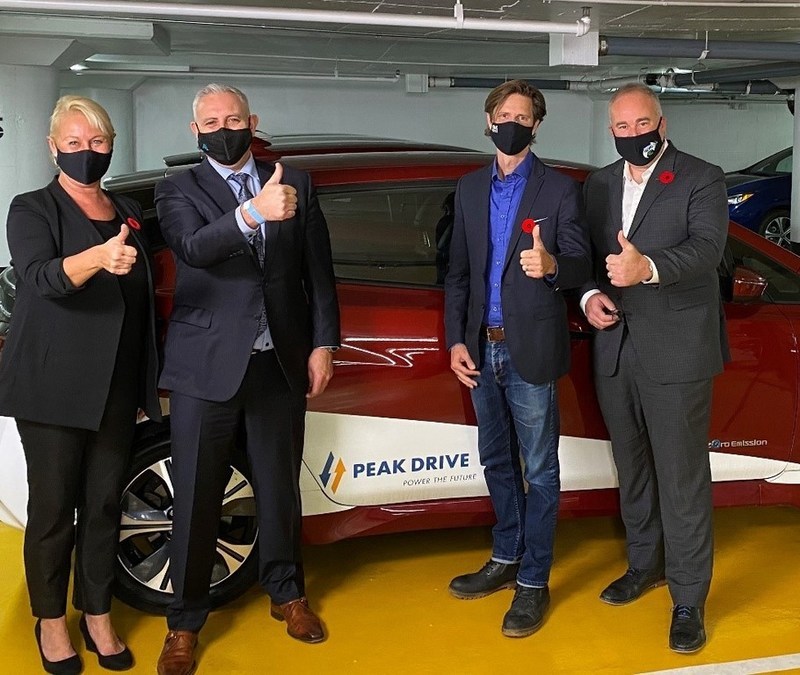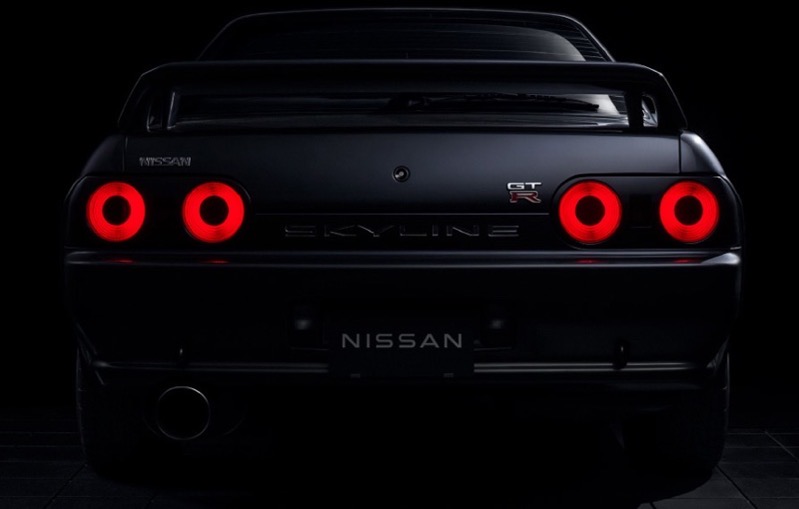
Hydro One to Let Electric Vehicles Backup Residential Power in Ontario

Image: CNW Group/Hydro One Inc.
Earlier this month, Hydro One and Peak Power announced the launch of an innovative new pilot program in Ontario designed to gauge the viability of electric vehicles (EVs) as backup batteries for residential power during power outages.
Leveraging two-way Vehicle-to-Home (V2H) charging technology, the pilot will evaluate the advantages of using electric vehicles (EVs) as batteries for backup residential power during simulated power outages.
Vehicle-to-Grid technology can dramatically reduce both costs and emissions and can comfortably power the average home for around three days, leaving enough battery in reserve to drive to a charging site.
The solution proposed by Hydro One and Peak Power is pretty different from Tesla’s Powerwall-backed ‘Virtual Power Plants’ or the feature that allows Tesla owners to charge their cars directly from a Powerwall. This solution basically turns the tables, using an EV’s integrated battery cells to charge your residence.
The end goal of the experiment is to determine whether EV charging technology can be used to improve the resilience and reliability of a residential power distribution system and supplement the power grid.
The pilot program is funded in part by the Independent Electricity System Operator’s (IESO) Grid Innovation Fund, which supports projects designed to either enable customers to better manage their energy consumption or reduce costs associated with maintaining reliable operation of the province’s grid.
“At Hydro One, we are committed to meeting the needs of our customers and providing exceptional service. As a leader in the integration of clean energy resources, we are making smart investments in our electricity system to enhance power resiliency,” said Jason Fitzsimmons, Chief Corporate Affairs and Customer Care Officer at Hydro One.
“Our partnership with Peak Power and the IESO will help us explore how this technology can lower costs and improve service for our customers.”
Hydro One is Ontario’s largest electricity transmission and distribution provider. Peak Power, on the other hand, is a Canadian Clean Technology company focused on AI-powered solutions designed to make building owners and operators part of the clean energy transition.
“We’re thrilled to be working with Hydro One as a utility partner who shares our passion for pioneering clean energy innovation to benefit their customers and help support the reliability, affordability and sustainability of Ontario’s grid alongside growing EV adoption,” said Matthew Sachs, Chief Operating Officer at Peak Power.
“This V2H project will demonstrate how utilities and system operators can integrate intelligent clean tech to modernize their grid with cost-efficient software solutions.”
Peak Power will deploy software the company has already demonstrated in its existing Peak Drive pilot program, in partnership with Nissan and the Federal Government. This technology is already being used with Nissan LEAF EVs in Australia, Europe, and Japan.
“Nissan has always been a supporter of measures that help encourage electric vehicle adoption so we’re happy to see pilot programs like this that raise awareness around the potential of electric vehicles,” said Nissan Canada.
“Sustainability and electric vehicles are an important part of the future and Nissan will continue to offer customers EVs, like the Nissan LEAF and upcoming all-new Ariya electric crossover, to continue to push the EV industry forward.”
